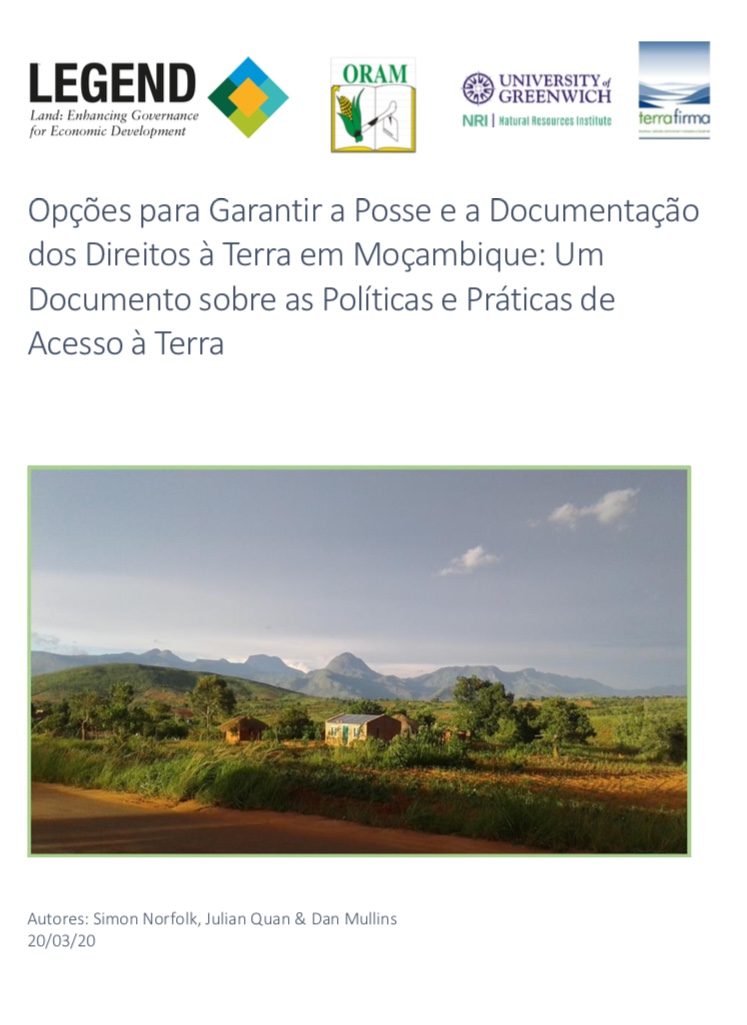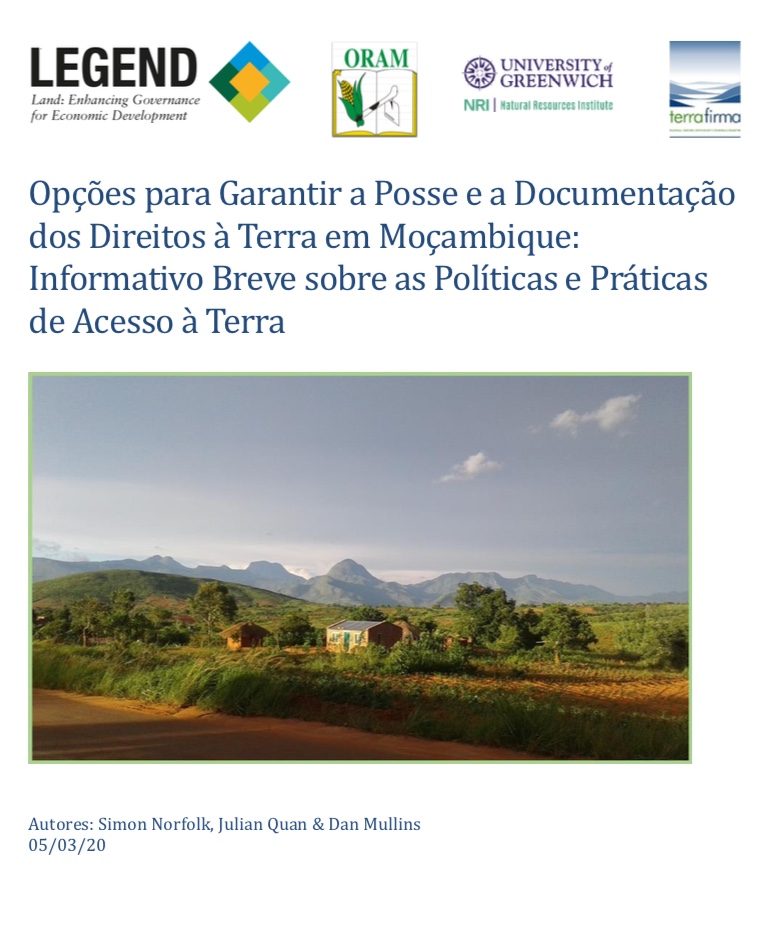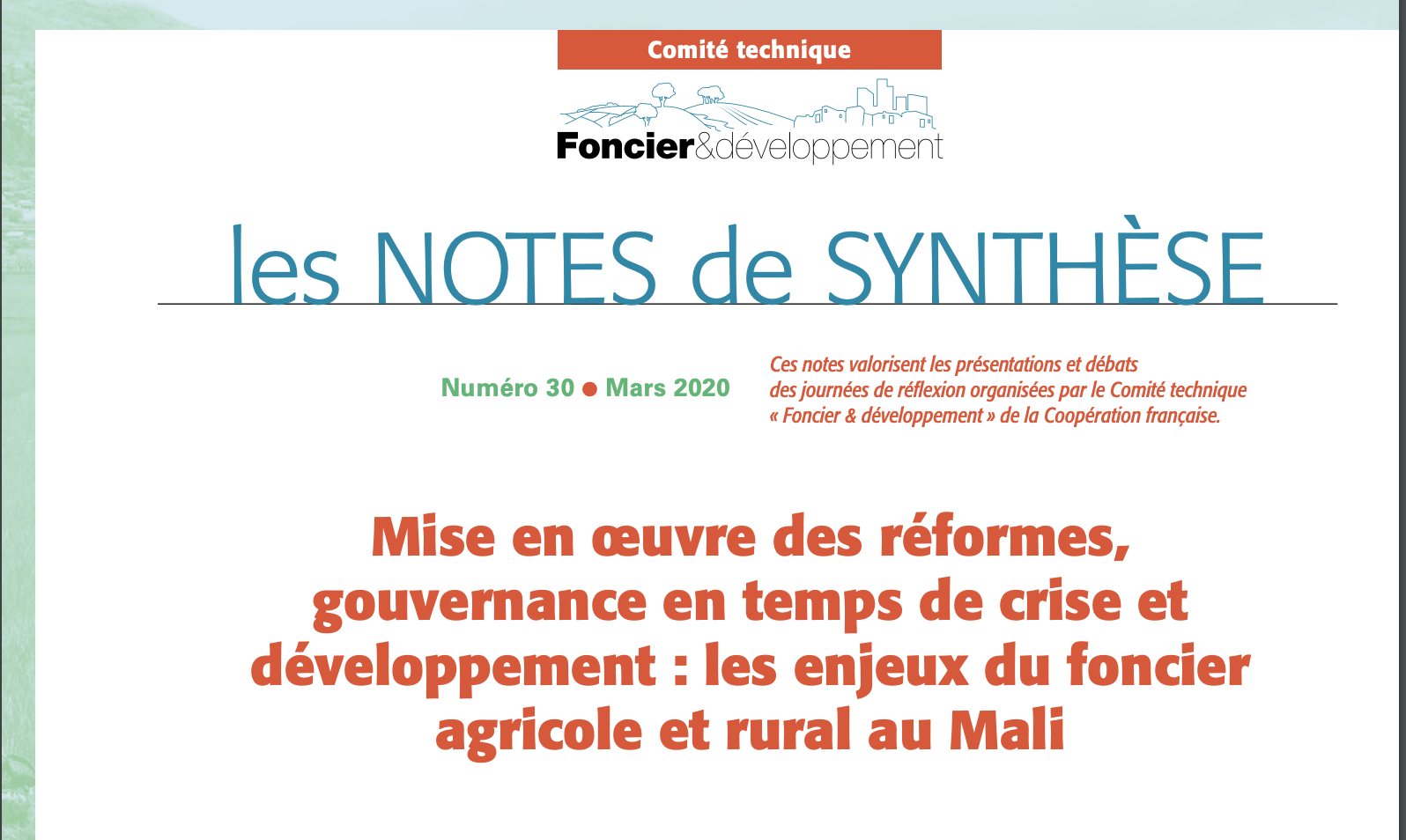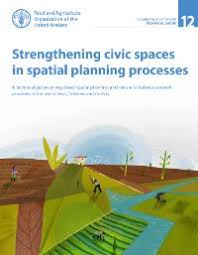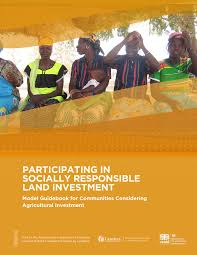Opções para Garantir a Posse e a Documentação dos Direitos à Terra em Moçambique
Um dos principais aspectos do quadro legal moçambicano de terras é que os cidadãos Moçambicanos podem adquirir direitos de posse por herança, por ocupação pacífica ou por canais costumeiros. Estes usufruem de direitos de posse, conhecidos pelo acrônimo em língua portuguesa 'DUAT' (Direito de Uso e Aproveitamento da Terra), que podem ser possuídos individualmente ou em conjunto.

